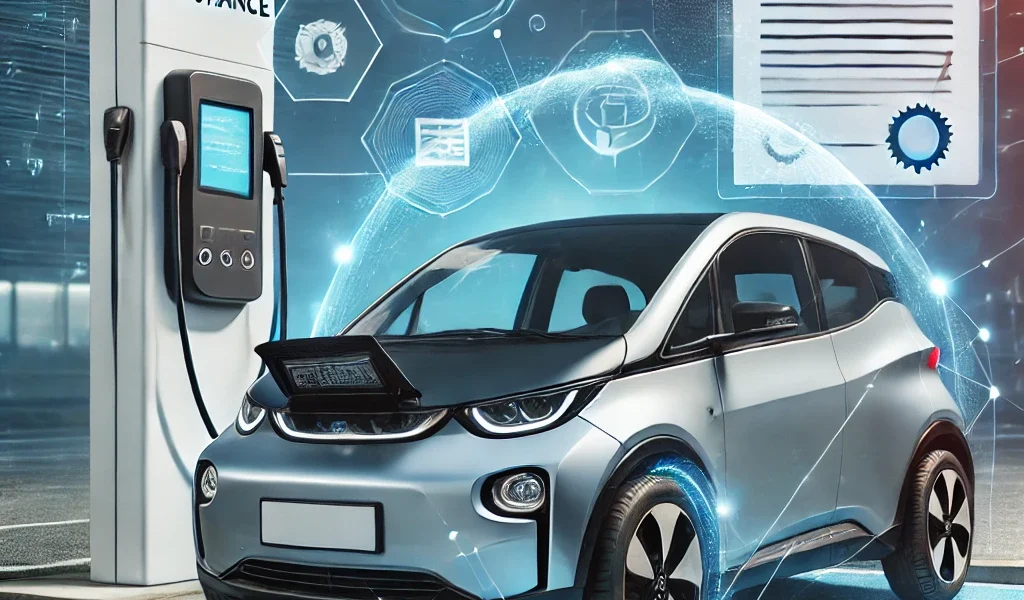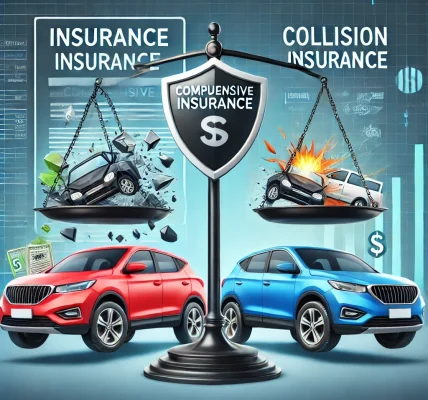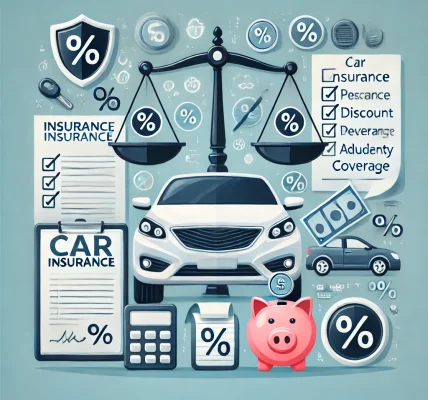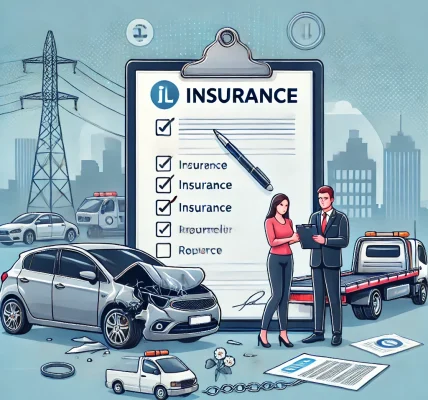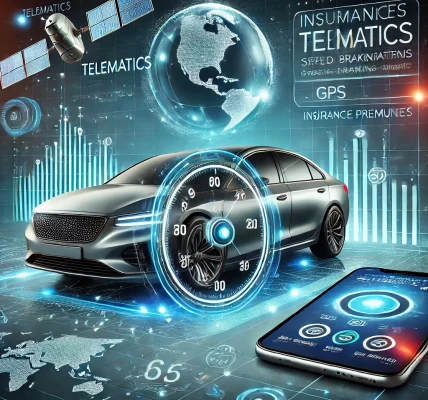As electric vehicles (EVs) become increasingly popular, many drivers are wondering how insurance policies for these cars differ from traditional gasoline-powered vehicles. While insuring an EV shares some similarities with conventional car insurance, there are key differences that can impact your policy costs, coverage options, and claims process.
In this comprehensive guide, we’ll explore how car insurance for electric vehicles works, the factors affecting premiums, coverage options, and tips to save on EV insurance.
Understanding Electric Vehicle InsuranceCar insurance for electric vehicles operates similarly to insurance for traditional cars. However, there are some unique factors that insurers consider when determining premiums for EVs:
🔹 Higher Initial Cost – EVs generally have a higher purchase price than gas-powered cars, making them more expensive to replace in case of total loss.
🔹 Expensive Repairs – EV components, especially batteries, are costly to repair or replace.
🔹 Specialized Mechanics – Not all repair shops can service EVs, leading to higher labor costs.
🔹 Advanced Technology – EVs come equipped with advanced driver-assistance systems (ADAS), which can increase repair costs but may improve safety and reduce accidents.
Because of these factors, insurance premiums for EVs can be higher than for gas-powered cars. However, there are ways to lower these costs, which we’ll discuss later in this guide.
Factors That Influence Electric Vehicle Insurance RatesSeveral factors influence how much you pay for EV insurance. Understanding these can help you find the best coverage at the lowest price.
- Vehicle Type and ModelInsurance costs vary depending on the make and model of your EV. Luxury and high-performance EVs (e.g., Tesla Model S, Porsche Taycan) tend to have higher premiums than more affordable models (e.g., Nissan Leaf, Chevrolet Bolt).
- Battery Replacement CostEV batteries are expensive, often costing between $5,000 and $20,000 to replace. Since the battery is the most valuable component of an EV, insurers take its replacement cost into account when setting premiums.
- Repair and Maintenance CostsEVs typically require less maintenance than gas-powered cars, as they have fewer moving parts. However, when repairs are needed, they can be expensive due to the specialized knowledge required to fix them.
- Safety FeaturesMany EVs come with advanced safety features such as automatic emergency braking, lane-keeping assist, and adaptive cruise control. These features can lower the risk of accidents and may qualify you for discounts on insurance premiums.
- Usage-Based Insurance (UBI) & TelematicsSome insurers offer usage-based insurance (UBI) programs, where premiums are based on actual driving habits. EV drivers who maintain safe driving behaviors can benefit from lower rates through telematics-based insurance programs.
- Location and Charging InfrastructureWhere you live impacts EV insurance rates. Areas with high theft rates, extreme weather, or limited charging stations can result in higher premiums.
Coverage Options for Electric VehiclesEV insurance policies offer similar coverage options as traditional car insurance. Here are the key coverages to consider:
✅ Liability Insurance (Required)Covers bodily injury and property damage if you cause an accident. Required in most states.
✅ Collision CoverageCovers repair or replacement of your EV if it’s damaged in an accident, regardless of who is at fault.
✅ Comprehensive CoverageProtects against theft, vandalism, fire, and natural disasters. This is crucial for EVs, as battery replacement after damage can be expensive.
✅ Uninsured/Underinsured Motorist CoverageCovers your expenses if you’re involved in an accident with a driver who doesn’t have enough insurance.
✅ Battery Coverage & EV-Specific Add-OnsSome insurers offer specialized coverage for EV batteries, which can protect against failure, damage, and fire.
✅ Roadside Assistance for EVsSince EVs can’t be refueled like gas cars, specialized roadside assistance can help with towing or mobile charging.
How to Save on Electric Vehicle InsuranceWhile EV insurance can be more expensive than traditional car insurance, there are several ways to reduce your costs: - Compare Multiple Insurance QuotesDifferent insurers assess EV risk differently. Comparing quotes from multiple providers helps find the best rate.
- Look for Green Vehicle DiscountsSome insurers offer discounts for eco-friendly vehicles, rewarding EV owners with lower premiums.
- Opt for Usage-Based Insurance (UBI)If you drive safely and infrequently, enrolling in a pay-per-mile or telematics-based insurance program can significantly reduce costs.
- Improve Your Driving RecordMaintaining a clean driving history helps lower premiums over time. Safe drivers pay less.
- Increase Your DeductibleA higher deductible (out-of-pocket expense before insurance kicks in) can lower monthly premiums. Just make sure you can afford the deductible if you need to file a claim.
- Bundle Insurance PoliciesBundling home, renters, or multiple vehicles with the same insurer can result in discounts.
- Take Advantage of Safety FeaturesIf your EV has autonomous braking, lane-assist technology, or anti-theft features, ask your insurer about potential discounts.
The Future of Electric Vehicle InsuranceAs EV adoption grows, insurance companies are developing new policies and pricing models to accommodate the unique needs of EV owners. Some future trends include:
🚀 Lower EV Insurance Costs – As EV repair technology improves and battery prices drop, insurance rates are expected to decrease.
🚀 AI-Powered Claims Processing – Insurers will continue using AI and automation to streamline claims and risk assessment.
🚀 Specialized EV Policies – More insurers will offer battery-specific coverage, charging station liability, and cyber protection for smart EVs.
🚀 More Discounts for EV Owners – As governments push for eco-friendly initiatives, more insurers will provide discounts and incentives for EV drivers.
Final ThoughtsElectric vehicle insurance is evolving to meet the needs of modern drivers. While EV policies may cost more due to higher repair costs and battery expenses, there are ways to save money through discounts, telematics, and safe driving habits.
Before purchasing an EV, it’s essential to compare insurance options and understand the coverage that best suits your driving habits. By doing so, you can enjoy the benefits of driving an electric vehicle while keeping your insurance costs manageable.
Thinking about insuring an EV? Get quotes from multiple insurers and explore available discounts to maximize your savings! 🚗⚡🔋
